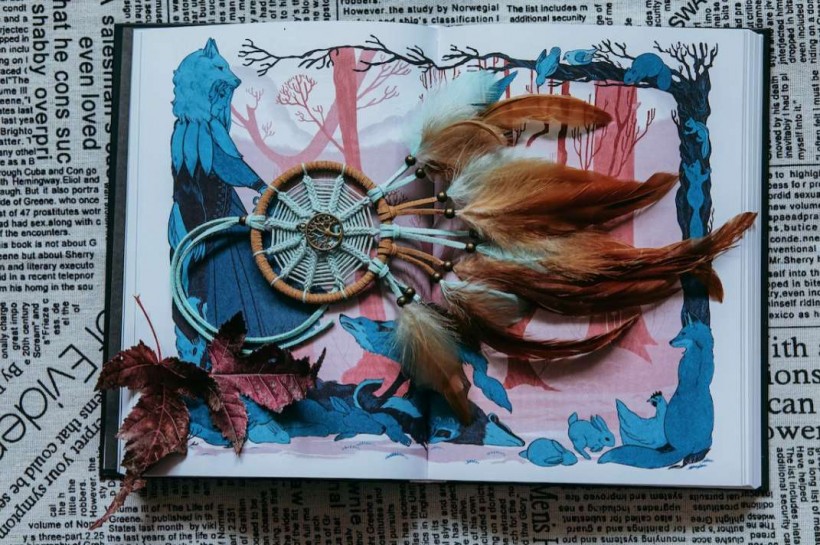Which Dream Book Is the Most Suitable for You?
Warning: Undefined variable $post in /home/dietofli/public_html/wp-content/plugins/code-snippets/php/snippet-ops.php(584) : eval()'d code on line 3
Warning: Attempt to read property "ID" on null in /home/dietofli/public_html/wp-content/plugins/code-snippets/php/snippet-ops.php(584) : eval()'d code on line 3
The estimated reading time is 5 minutes
Warning: Undefined variable $post in /home/dietofli/public_html/wp-content/plugins/oxygen/component-framework/components/classes/code-block.class.php(115) : eval()'d code on line 3
Warning: Attempt to read property "ID" on null in /home/dietofli/public_html/wp-content/plugins/oxygen/component-framework/components/classes/code-block.class.php(115) : eval()'d code on line 3

Everyone has probably seen a dream at least once and tried to interpret it. The easiest way to find out what this or that image means is to look in the dream book, where the most famous dreams are collected in alphabetical or thematic order. It is up to you whether to believe the information you receive or treat the interpretation as fun. If you decide to sort out how a dream might affect your life, you should first understand how dream dictionaries' compilers interpret night visions and which one might be the most suitable for you.
From Divine Providence to Free Association
For centuries, people have been trying to unravel the meaning of dreams and how they might relate to real life. Usually, this was not the work of mere mortals but people with talent or special powers. Let's consider the most popular dream encyclopedias that can become your guides to the world of the subconscious.
-
Assyrian dream book
One of the oldest existing compilations of dreams is an Assyrian one written in cuneiform on clay tablets. In Ancient Assyria (Mesopotamia), dreams were significant because people believed that through visions, deities communicated with them, sent them hints on how to act, etc. Austrian-American assyriologist A. Oppenheim translated it. The original is kept in the British Museum.
-
"Oneirokritika"
"Oneirokritika" is an ancient Greek treatise on dream interpretation written by Artemidorus in the 2nd century AD. The author distinguished ordinary dreams, which tell about the present, and prophetic, allegorical ones. The work is valuable because its author was the first to apply an individual approach. Artemidorus paid attention to the sex, age, status, and profession of the dreamer and interpreted the dream depending on these factors. For example, a wealthy man who dreamed of a green valley might expect an increase in power; a poor man who had the same dream could hope for the birth of a helper son.
-
Nostradamus' dream book
Most academic sources deny that Nostradamus had supernatural prophetic powers. The predictions of Nostradamus, created in the 15th century, are so vague and imprecise that they can be applied to almost any event. Despite this, the interpretation of the French soothsayer still attracts followers of mystery worldwide, especially those who know how to listen to their intuition. Nostradamus insisted that dreams have a vector character: They originate in the distant past and go into the distant future. By interpreting dreams according to this book, you can learn about changes in personal life and future global political and social phenomena.
-
Vanga's dream book
This book is based on interpretations using the gift of prophecy. Vanga was born in 1911 and predicted many events of the 20th century. She said she had received the information from invisible beings, particularly in dreams. Like Nostradamus, the blind Bulgarian seer interpreted what she saw not only in the context of a person's private life but also predicted events on a planetary scale. The meanings of dreams based on Vanga's revelations might describe the current or future course of events and predict the fate of a person, country, or even the world.
-
Freud's dream book
Unlike his predecessors, the Austrian psychoanalyst Sigmund Freud considered dreams not from a mystical but a scientific point of view. He was sure that all our dreams are not random but are a reflection of our subconscious sexual desires, hidden fantasies, and memories from childhood. In 1900, he published the work "The Interpretation of Dreams," based on which, a dream dictionary was compiled later. Due to the vivid sexual nature of the interpretations, it is often called an erotic dream book. However, Freud would hardly have agreed with such a definition. In his opinion, the interpretation of dreams can become the key to understanding the human psyche. Although today the scientist's approach causes many discussions, this book remains relevant. (1)
-
Miller's dream book
Written in 1901, Miller's dream dictionary has survived dozens of editions and is considered a classic in its genre. American psychologist and entrepreneur Gustav Hindman Miller used a universal approach and created the complete collection of dreams. In his opinion, dreams are clues that the subconscious mind sends to a person with the help of associations. By analyzing a set of objects and symbols seen in a dream, one might predict events in their life. Many of Miller's interpretations are outdated, but there are modern versions of the dream encyclopedia that are adapted to today’s realities. Miller's work can be compared to a good adviser who tries to suggest the right decisions in various life situations.
Which Dream Book to Choose?
Today, dozens of dream dictionaries use different approaches to sleep interpretation. According to Freud, the best dream book is a personal one, based on individual observations. After all, each of us has our associations with certain things.
If you didn’t have the opportunity to compile your compilation of dreams, you might try to decipher your night visions with the aid of available guides. At the same time, it would be helpful to correlate your socio-cultural and geographical context with the author's background. Our perception of the world is connected with our environment. For example, an Orthodox dream book is more suitable for an Orthodox person, and a Muslim one rather fits a Muslim. After all, for a Muslim, a dream about a dinner with pork might mean sin, and for an Orthodox—prosperity. (2)
Dream Book: Trust, but Verify
You might choose the most suitable dream dictionary depending on your preferences and faith in this or that interpretation of dreams. It might be a book based on ancient allegories, such as the Assyrian one, or a Freud's one that emphasizes the sexual connotations of night visions. The meaning will not always predict what you want to hear, but this is not a reason to worry about. After all, the prophecies don’t always come true, so you should not trust any dream book a hundred percent.















